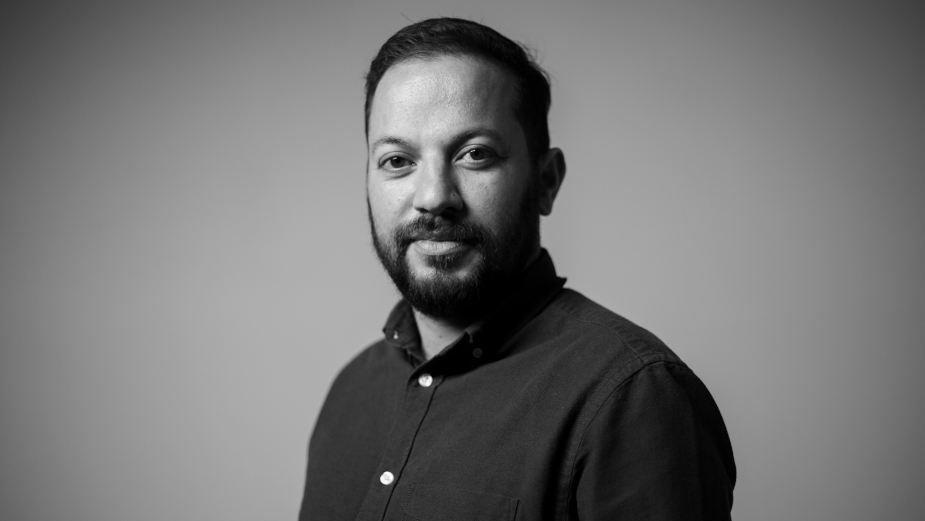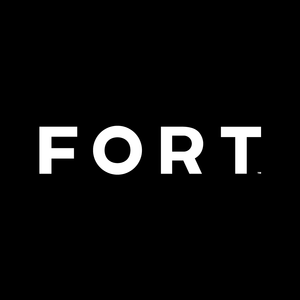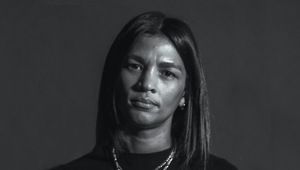
Meet Your Makers: Craig February

Craig February is a world-class commercials producer from South Africa. As Executive Producer at FORT, Craig has worked with global agencies, award-winning creatives, and an impressive list of coveted brands. With over 15 years’ of experience, he is best known for bringing calm to complex sets, decisive judgement, creative structures for creativity to flourish, and has helped deliver on some of the world’s most memorable advertising.
What first attracted you to production - and has it been an industry you’ve always worked on or did you come to it from another area?
I was always attracted to the film industry, but I didn’t start my career there. I spent six years doing financial administration and client relationship management for medical aid schemes. It was a stable job, decent pay and very comfortable––more comfortable than I was comfortable with––so I handed in my resignation and used my pension fund to go to film school. While studying, I freelanced as a camera operator and editor and worked in a video rental store in the evenings after class.
After graduating, I worked on an independent feature film as a camera assistant. I would say it was as a focus puller but the DP hit my hand off the focus wheel too many times when I wasn’t hitting the mark for me to claim that title. I spent most of my time working in the camera department on-set. While working as a DoP for a political satire show, I got an opportunity to join a production company where I was thrown into the deep end and my love for production emerged.
What was your first role in the production world and how did this experience influence how you think about production and how you grew your career?
I started as a production manager, initially producing corporate videos and animated AVs before moving on to produce commercials. I learnt very quickly that there was a lot that I needed to learn. This understanding has made me a lifelong student of the game.
How did you learn to be a producer?
Many things contributed to my learning. There are so many levers you need to pull on to be a good producer, and with that, various skills you need to hone and develop. I learnt how film sets worked while freelancing in various departments, I listened to the conversations between HoDs and their teams, and stole with my eyes.
I drew on my time in corporate when managing client relationships and budgets. But the real nuts and bolts of producing I learnt on the job, by trial and error. I attempted to follow best practice, while developing my own processes. You will never know everything there is to know, so in a sense, I am still learning and that excites me.
Looking back to the beginning of your career, can you tell us about a production you were involved in where you really had to dig deep and that really helped you to grow as a producer?
I produced two music videos for an international artist on a very modest budget. It was early in my career and the available resources were minimal. The crew were stretched with long days, complex setups and challenging locations. To further the complexity, my planning and the way I managed the budget was inadequate for what was required. I underestimated the scope, and it was felt by the crew. Keeping everyone committed was a real challenge and I questioned my role in all of this. The music videos turned out okay but I hated the experience––an experience I never wanted to repeat. I took it as an opportunity to re-evaluate the way I worked and adjusted my processes accordingly. I learnt not to take anything for granted as nothing is a given.
A good producer should be able to produce for any medium, from film to events to digital experience. Do you agree or disagree with this statement? Why/why not?
I absolutely agree. At its core, producing is really about pooling resources to achieve an objective. Budget, timelines, creative ambition and curveballs are all part of it.
I got married a number of years ago. The wedding was in a remote town a few hours out of the city. I treated the event like a production. As I was no longer living in my hometown, I employed family members as scouts to recce the location, hired the tech crew, arranged catering and craft while my wife looked after art and wardrobe. All while remaining within budget. The only thing missing was a call sheet. I look at most personal projects through this lens.
What’s your favourite thing about production and why?
I enjoy the challenge. Job requirements vary, and so does the corresponding complexity. You are often trying to do things you haven’t done before as agency creatives and directors are always trying to push the envelope.
I also love the people aspect of it. We bring hundreds of people together from various backgrounds and skills sets to contribute towards one common goal: to make great work. When well-oiled, the machine in motion is beautiful to watch. The collaborative spirit within the industry is quite unique and everyone is committed to their craft.
How has production changed since you started your career?
Technology has levelled the playing fields, so the diversity of people entering the industry has increased. User-generated and influencer driven content has meant that marketers have more options on where to spend their money and thus commercial budgets have decreased. Digital workflows has sped up certain processes and production timelines have tightened.
And what has stayed the same?
Technology may have impacted many departments, but the production process largely remains the same. You still have a script that you need to turn into film, with finite resources, varying complexity, a ticking clock and a client waiting to be impressed.
What do you think is the key to being an effective producer - and is it something that’s innate or something that can be learned?
Certain innate attributes can definitely contribute to being a good producer. The ability to work well with people, a knack for numbers, a sense of calm during challenges are some traits that can assist producers being successful. During a recent conversation I mentioned to someone that when I was 8 years old I used to draw pictures of a helicopter from a TV series called Airwolf and sold them to kids at my school so that they could colour them in. He said well that’s pretty much what you do now, create a framework for people to be creative within, so I guess there might be something to the nature part of it. But I feel that most things required to be a good producer can be learned if the will to learn is there.
For me the most important factor is a love for production or at the very least a want to be in production. Difficult jobs will test your resolve, the complexity can make you question yourself and your desire to remain in the game. Emotionally you will be challenged as the highs are pretty high and the lows can feel like a punch in the gut, so I find that to be successful you need to love what you do so that the juice feels worth the squeeze.
Which production project from across your career are you most proud of and why?
I produced a mini sci-fi film for Opera, an internet browser, which I quite enjoyed. The creative requirements excited me and I thought the art, wardrobe and camera departments did great work. We also manage some cool in-camera effects and we did the VFX in-house. We shot over three days, were clever around locations, staggered call times to maximise our resources and had a lot of fun doing it. Having said that, I’m generally quite critical of my work and often interrogate them well beyond a happy client.
And in terms of recent work, which projects have you found to be particularly exciting or have presented particularly interesting production challenges?
On a shoot for a summer ad for KFC, the weather reports of clear skies did not prevent a thunderstorm from unleashing its fury on our set. We shot the setup of the ad in clear skies and bright sun on Day One so continuity was the main issue. It stopped raining at 11pm so we quickly brought out the big lights, dried the surfaces and shot six scenes in two hours. In the end, the ad didn’t suffer as much as we did.
Producers always have the best stories. What’s the hairiest / most insane situation you’ve found yourself in and how did you work your way out of it?
I’ve had many hairy moments on-set, some of which is probably best left unsaid. One particular challenging project was an 11 day shoot in Kathmandu, Nepal. We travelled with the Director, talent and DoP, everyone else was local crew. Outside of the local Production Manager, nobody spoke any English so communication was a massive challenge. I decided to immerse myself in the culture and spent a lot of time with the PM understanding the way they operate. I got to a point where I was able to communicate with the crew using gestures and body language. The project was a success and it was one of the most rewarding jobs I have ever been on.
What are your personal ambitions or aspirations as a producer?
I have a lot of headroom in commercial production so my immediate ambitions are centred around that. I do, however, want to get my hands dirty in long-form production.
As a producer your brain must have a never-ending "to do" list. How do you switch off? What do you do to relax?
My family helps. South Africa has a lot of natural beauty––you can drive in almost any direction and find a gem. I try to get away with the family and explore the nooks and crannies whenever I can. It doesn’t take a lot for me to unwind and recharge, and a quick weekend away in the bush often does the trick.
Producers are problem solvers. What personally fuels your curiosity and drive?
I enjoy getting things done. The more complex the situation, the more driven I am to find solutions. Growing up, my father taught me a lot by not teaching me specifics. He provided a safe space for me to figure things out and only intervened when he needed to. I learnt very early in life how to learn what I needed to learn, to do what I needed to do.
What advice would you give to people who are interested in becoming a producer?
There are many ways to enter production but my advice would be to get a job on-set. It would be great if it was in the production team but any job will do. They all count. I would bash cables, swing booms, work in the camera department, make coffee, all just to be there. Once you do get onto a production, first make sure you do the job you are there to do and do it well, then try to take in as much as you can about everything happening, in all departments. It can seem overwhelming, but will make more sense the more you are exposed to it. Then try to get into the production department as a PA or coordinator. If at this stage you are still excited by production, just keep at it and be relentless in your pursuit of learning.
From your experience what are the ingredients for a successful production?
Start with a good understanding of the brief and its requirements. Translate it into a budget. This is your initial plan, so put effort into it. Do thorough pre-production, put a strong team together and get everyone aligned.
Making commercials is very collaborative: it starts with a client need, which is answered by the creative agency. The director then brings their interpretation, and the HoDs work together to translate that interpretation, which the Post team then further elaborates on. It’s important to sense check the progress through all of these checkpoints as the various contributors could take the concept closer or further away from the client’s initial need.
Ultimately, a production can only be deemed successful if the client is happy and the project made commercial sense. The production experience and doing meaningful work are also very important to me.
What’s the key to a successful production-client relationship?
Building and maintaining a level of trust with the client is important, and so is intrinsically understanding their need and being open and honest about what is and is not possible. Understand that not all clients are the same––some are very involved while others trust the process and are not interested in the puzzle pieces. Managing their expectation as a result comes in many forms.
One specifically for EPs: Producers are naturally hands on - they have to be. How do you balance that in the more managerial role of an EP?
I’ve always enjoyed managing people and I’ve led production and post-production teams along my journey. I am also very hands-on and am often invested in the smallest of details, so it does become a bit of a balancing act between making sure the production is looked after and giving the producer space to find their own way.
Opera - Escape
KFC - Kentucky Bucket
DSTV - Thanks!
Doritos - Flamin' Hot










